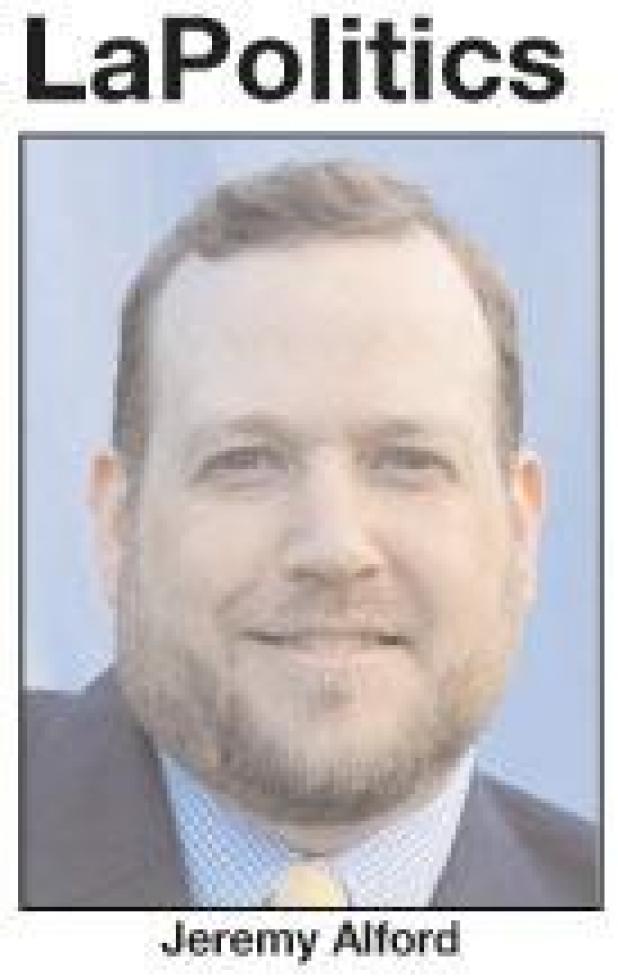
Louisiana Politics: Chatter persists about special session
Lawmakers, administration officials, lobbyists and other government relations professionals are working under the assumption that the next special session of the Legislature will be called some time after Feb. 14.
Louisiana residents up to speed on on next year’s cultural calendar already know that date as Ash Wednesday, or the official end to Mardi Gras. That’s the timeframe — sometime in late February, after the carnival season quiets down — that Gov. John Bel Edwards has mentioned as a possibility in several meetings.
But like all things that radiate from the tall, pointy, Alabama limestone building located in downtown Baton Rouge, there are caveats. Edwards is said to be looking for a true consensus on something — anything — that the House can get behind, his administration can live with and that the Senate can stomach.
The governor has already said he has no intentions of calling lawmakers into an unnecessarily session if gridlock is the predictable byproduct.
The promise of a compromise, however, could prompt Edwards to call a special session to tackle what he is describing as the “fiscal cliff” of 2018 — that’s when a budget gap of more than $1 billion will materialize due to the expiration of temporary taxes. That would save lawmakers from undertaking what would be a highly emotional special session in the wake of a regular session where a budget would have to be balanced against the so-called fiscal cliff.
The 2018 regular session is scheduled to convene on March 12.
AG’s new chief of staff,
via U.S. Rep. Steve Scalise
Lynnel Ruckert, the former chief of staff to U.S. House Majority Whip Steve Scalise, R-Jefferson, has been hired by Attorney General Jeff Landry to fill the same role on his team in Baton Rouge.
Ruckert will officially join the state Justice Department as director of administrative services on Tuesday, Oct. 17. In this role she will be responsible for coordinating the department’s budget, legislative affairs, planning and performance. Ruckert is currently employed by the state Treasury Department.
Liz Murrill has for some time been balancing two full-time roles as solicitor general and administration services director. But she’ll be able to hand the latter title over to Ruckert, whose pay will be funded from within the department’s existing budget. Meanwhile, Bill Stiles will continues to serve as the chief deputy attorney general.
The addition of Ruckert, according to a spokesperson, will allow Murrill to focus solely on the “significant, complex litigation” before the department. Attorneys there are currently defending “five abortion lawsuits, a criminal case at the U.S. Supreme Court and a Department of Corrections challenge to its grooming policies. Additionally, Solicitor General Murrill — working with Chief Deputy Stiles — is actively working on a number of federal and state policy matters.”
Looking ahead to redistricting
There may be a touch of momentum surrounding the redistricting conversation in Louisiana, even though the process is still a few years away.
Redistricting takes place every 10 years, following the U.S. Census, and is a way lawmakers adjust election district to address changing population trends. The next Census will take place in 2020.
Planning is now underway for a statewide summit on the issue, and a bipartisan slate of current and former elected officials have agreed to take part, although names and details have not yet been made available for release. An announcement is coming soon, though, for a 2018 meeting date and a major institutional partner for this effort.
Late last year LaPolitics published a story about the formation of an organization called Fair Districts Louisiana, which could dovetail with these most recent rumblings. Additionally, the U.S. Supreme Court heard oral arguments recently in a Wisconsin case, Gill v. Whitford, that could potentially alter the way state legislatures draw districts.
Political History: Unfriendly month For governors
Since 1828 there have been seven Louisiana governors who have passed away during the month of October, either while in office or later in private life.
The last week or so actually marked the death of three: Thomas Bolling Robertson (Oct. 5, 1828), Pierre Auguste Charles Bourguignon Derbigny (Oct. 6, 1829) and Henry L. Fuqua (Oct. 11, 1926).
Robertson was Louisiana’s third governor. He died at the age of 48, just four years after his one and only term ended. He went on a search for remedies for an ongoing illness and the healing springs of Virginia, where he was born and his parents resided, sounded promising.
Unfortunately, that trip was his last. He is buried in West Virginia.
The same year that Robertson died, Derbigny was elected as Louisiana’s sixth governor. The anti-Jackson, French-born National Republican was 10 months into his single term when he was thrown from a horse-drawn carriage. The head injury he sustained was too much, though, and he died three days later in Gretna. Derbigny is buried in New Orleans.
Fuqua, unlike Robertson and Derbigny, was born in the state that he governed. He was elected in 1924, beating both Lt. Gov. Hewitt Bouanchaud and Huey P. Long in the Democratic primary. He died suddenly halfway through his term at 61, inside what was then the “executive mansion.” He’s buried in Baton Rouge.
Four other governors have passed away during the month of October, including Louis A. Wiltz (Oct. 16, 1881), James A. Noe (Oct. 18, 1976), Henry S. Thibodaux (Oct. 24, 1827) and Dave Treen (Oct. 29, 2009)
For more Louisiana political news, visit www.LaPolitics.com or follow Jeremy Alford on Twitter @LaPoliticsNow.
